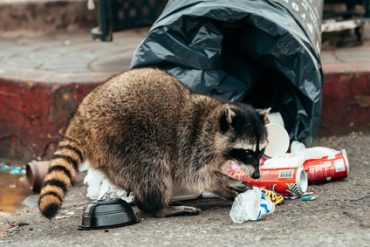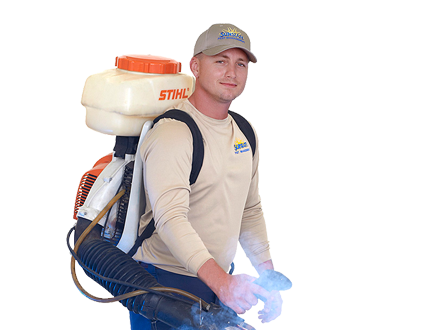

Raccoons eat vegetation, other animals, and insects, making them omnivores. Their choice meal, however, depends on their location and they’re found everywhere in the U.S., except Alaska. For example, ones living near water may snatch a frog or crawfish from creeks and streams. Raccoons may also grab mice, steal bird’s eggs, or insects. These mammals reside in urban locations as well and are known to eat pet food left outside by homeowners or rummage through trash cans. Basically, raccoons will eat almost anything.
Where Raccoons Reside
Raccoons reside in dens, regardless of their location. They’re resourceful and are capable of creating a home from holes in trees, fallen tree trunks, or burrows abandoned by other animals. Although raccoons prefer to reside near water, some are found in attics or crawl spaces as well.
Wintertime Worries
Raccoons stay active all year-round, though fewer are seen in winter. Some raccoons, mostly in northern states, stored body fat during the spring and summer allowing them to sleep in their dens for much of winter. They sleep for several weeks at a time in the winter months, and it is common to find many of them sharing a den. During the cold months, raccoons are less motivated to switch dens, making it possible to have a “gaze” or group in the crawl space or attic.
Rid Your Home of Raccoons
The CDC or the Center for Disease Control and Prevention states, among wild animals, raccoons are the most common carrier of rabies. This means homeowners do not want a raccoon residing in their attic during the winter. Signs raccoons den in or in the vicinity of your home includes smudge marks or tracks on decks, walls, or in ground located near gutters and pipes. Small dropping may also be found on your roof or near trees.
If you suspect raccoons reside in your crawl spaces, attics, or anywhere located near your home, a wildlife removal service should be notified. These mammals can be aggressive and their dropping may contain parasites.
Wintertime Raccoon Prevention
Although raccoons may find a way inside, there are steps homeowners can take to help prevent wintertime raccoon denning:
If you suspect raccoons are in your crawl space or attic, contact a professional who can create a safe removal plan.
